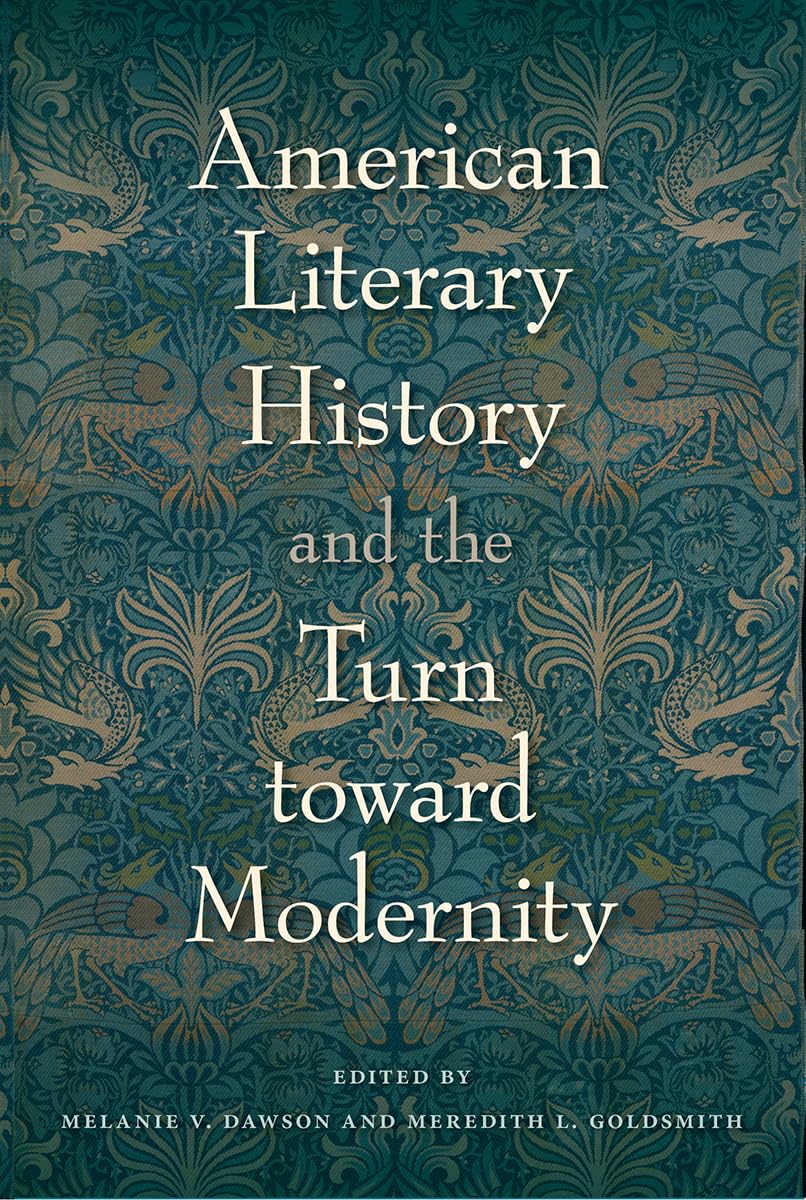- Contributor
- Editors
- Publisher
- Year
- ISBN
- Language
- Myrto Drizou
- Melanie V. Dawson & Meredith L. Goldsmith
- University Press of Florida
- 2018
- 9780813056043
- English
The years between 1880 and 1930 are usually seen as a time in which American writers departed from values and traditions of the Victorian era in wholly new works of modernist literature, with the turn of the century typically used as a dividing line between the old and the new. Challenging this periodization, contributors argue that this entire time span should instead be studied as a coherent and complex literary field.
The essays in this volume show that these were years of experimentation, negotiation of boundaries, and hybridity—resulting in a true literature of transition. Contributors offer new readings of authors including Jack London, Edith Wharton, and Theodore Dreiser in light of their ties to both the nineteenth-century past and the emerging modernity of the twentieth century. Emphasizing the diversity of the literature of this time, contributors also examine poetry written by and for Native American students in a Westernized boarding school, the changing attitudes of authors toward marriage, turn-of-the-century feminism, dime novels, anthologies edited by late-nineteenth-century female literary historians, and fiction of the Harlem Renaissance.
Calling for readers to look both forward and backward at the cultural contexts of these works and to be mindful of the elastic categories of this era, these essays demonstrate the plurality and the tensions characteristic of American literature during the century’s long turn.
This essay argues that Theodore Dreiser’s novel Sister Carrie (1900) questions the rationalization of modern progress by depicting the turn of the century as a moment that wavers between the urgent incalculability of the future and the conventional knowledge of the past, embodied in the two main plotlines of the novel: Carrie’s hasty anticipation of the future and Hurstwood’s steady retreat to the past. For many scholars, the intersecting plotlines of Sister Carrie suggest the contrasting narratives of progress and decline that confirm the irreversibility of fate in turn-of-the-century naturalist texts. Dreiser complicates the teleology of this model, however, by dramatizing the temporal unpredictability of evolutionary tropes (change, adaptability, and chance) to illustrate wavering as a mode that allows his characters to measure their options and remain open to the future. This wavering mode furnishes a new paradigm of thinking about the fin de siècle as an incalculably open jangle that welcomes (and embodies) the resistance to rationalized discourses of modernity. In this sense, Dreiser’s novel prompts us to question and rethink our contemporary processes of rationalization, such as the standardization of knowledge through period-based models of teaching and temporally restrictive paradigms of scholarship.


